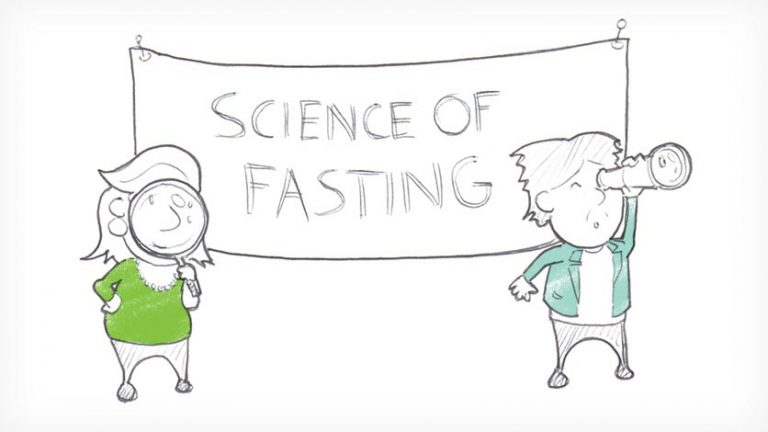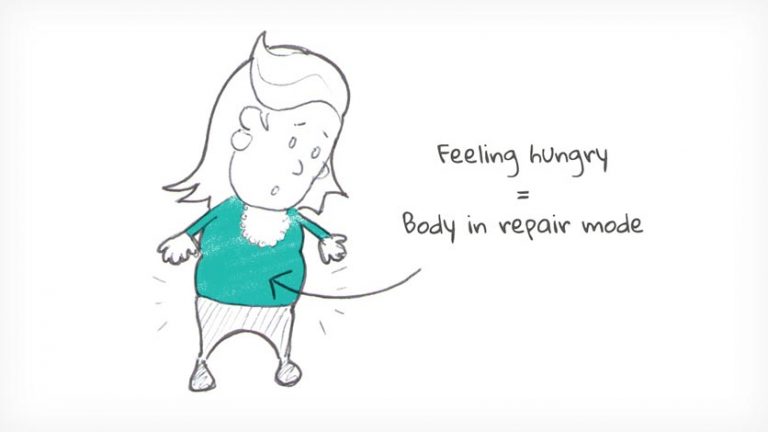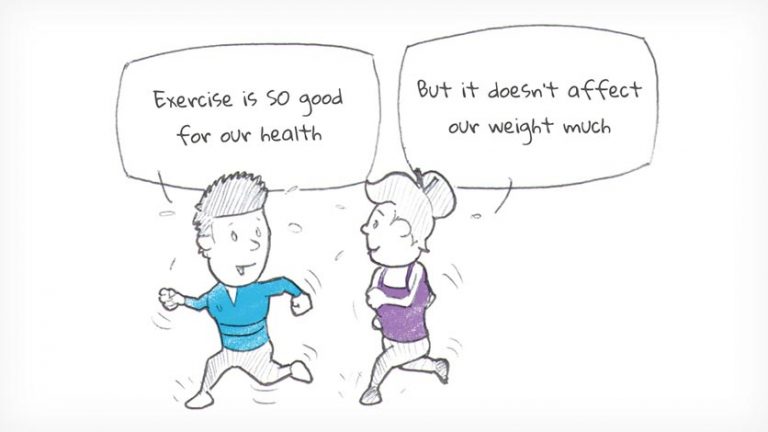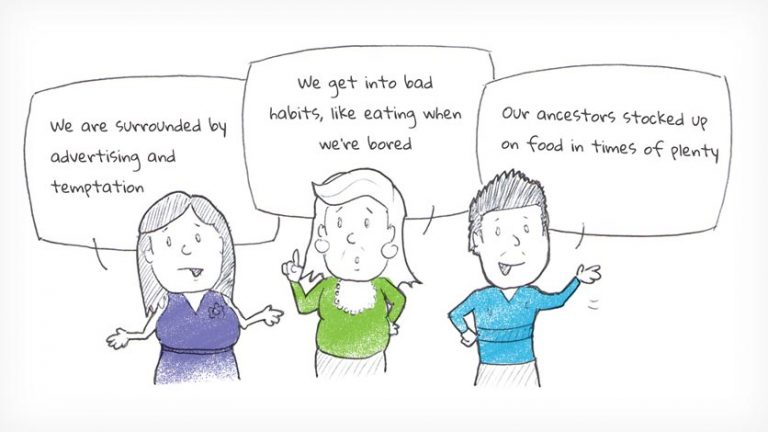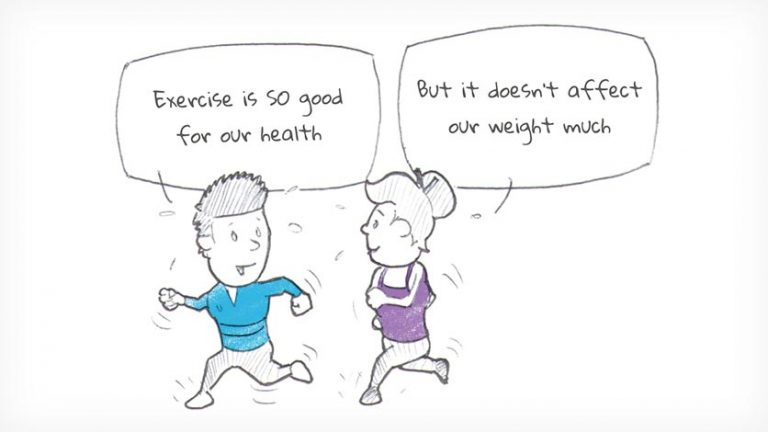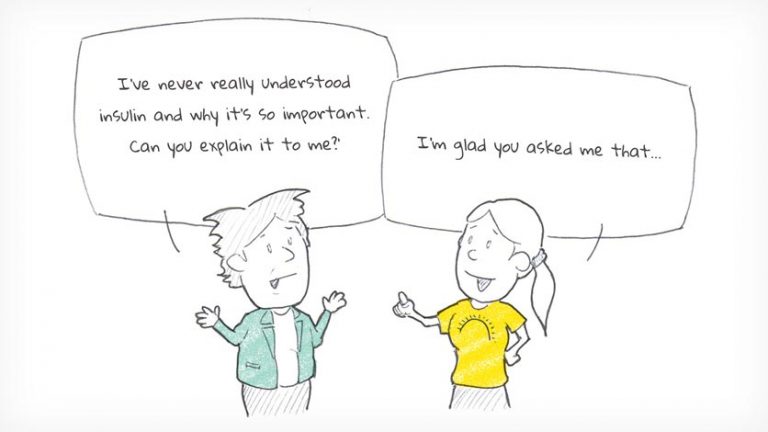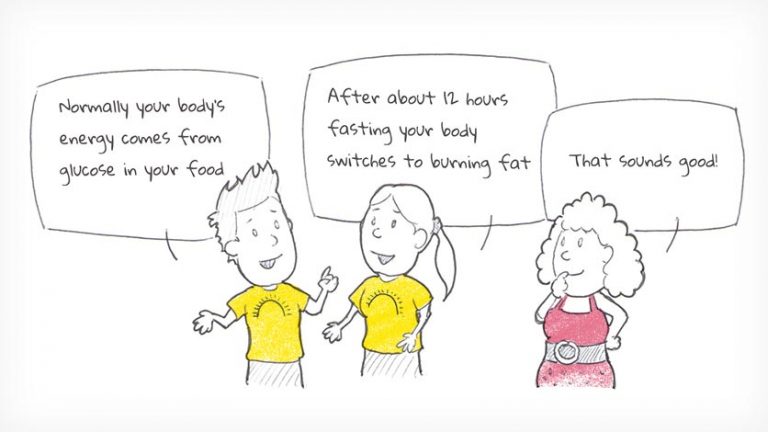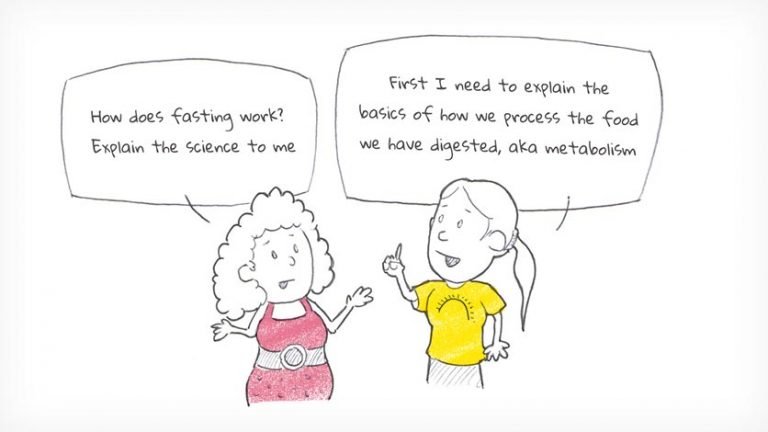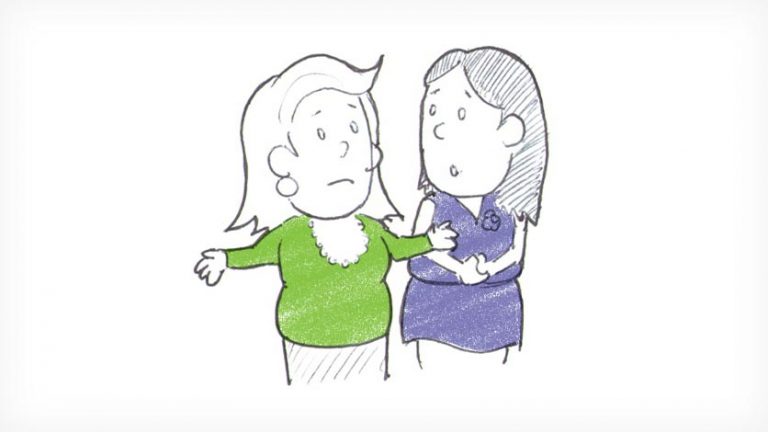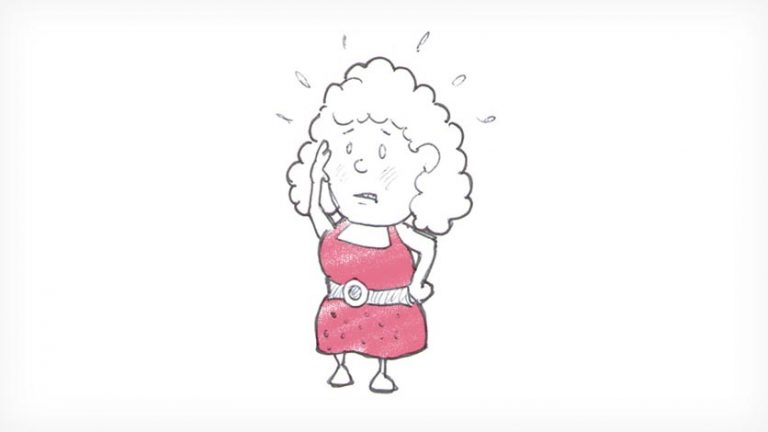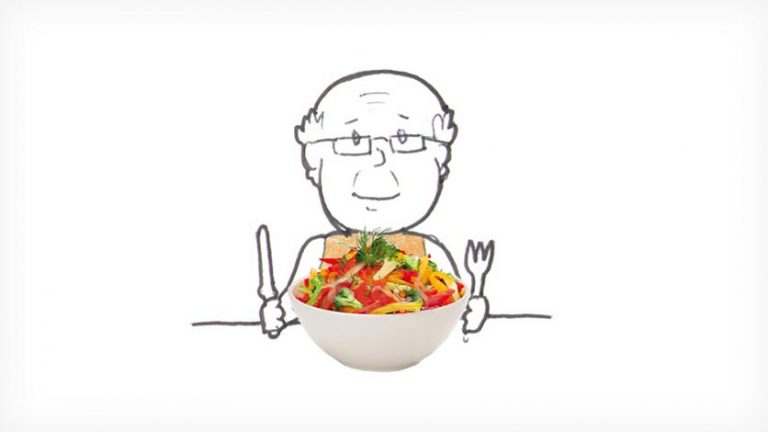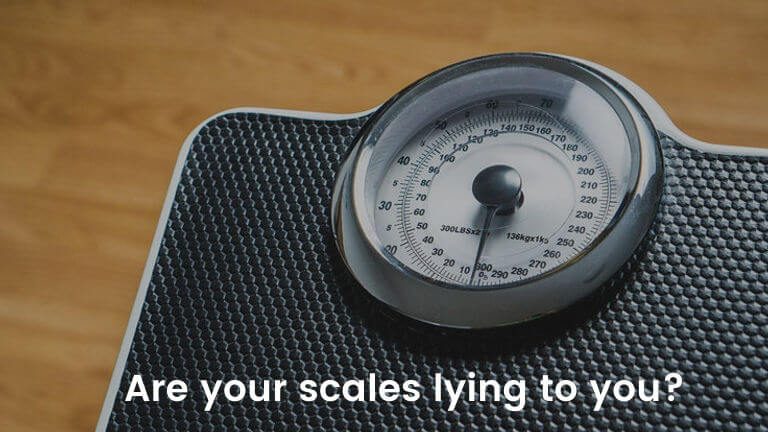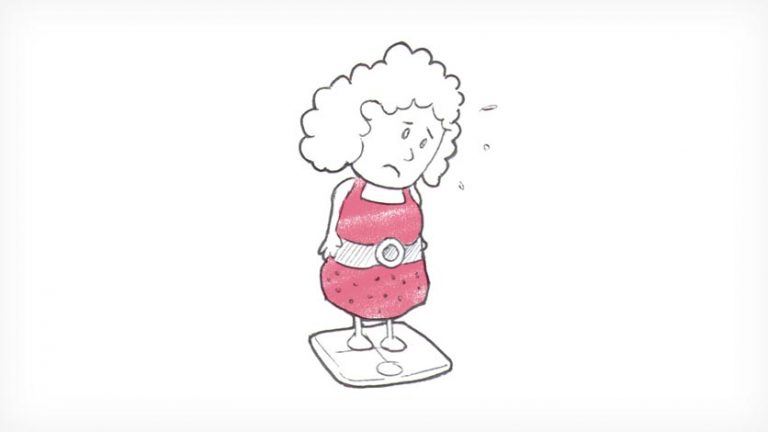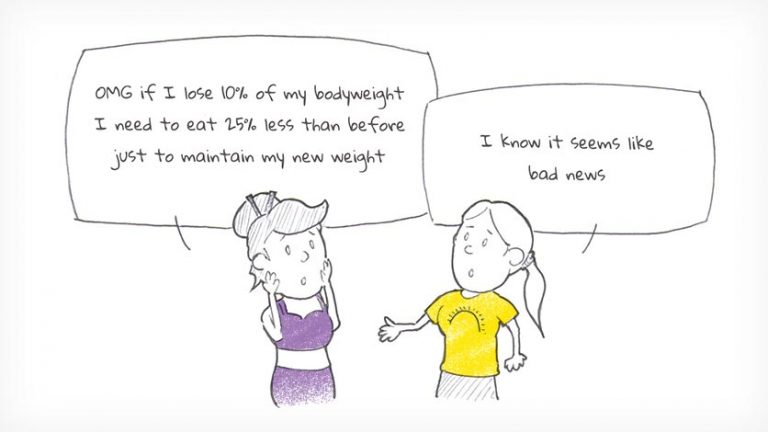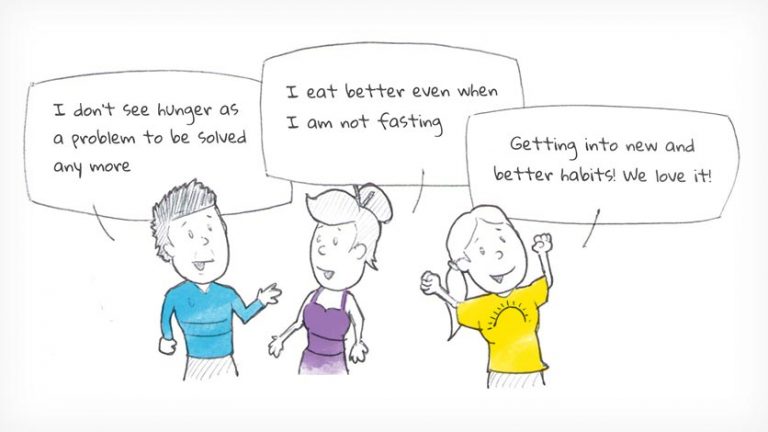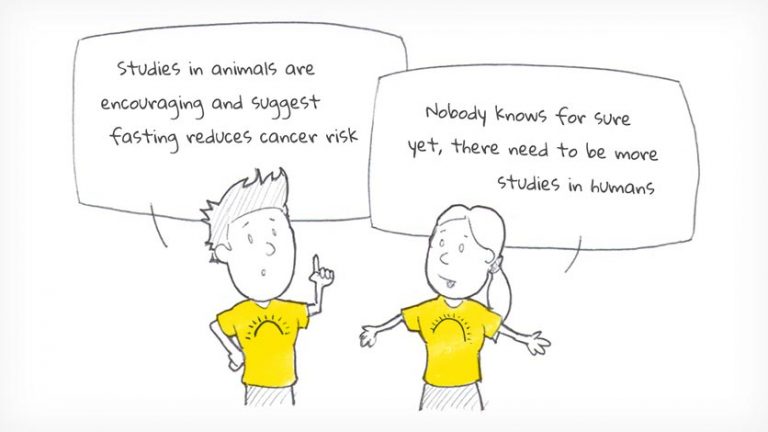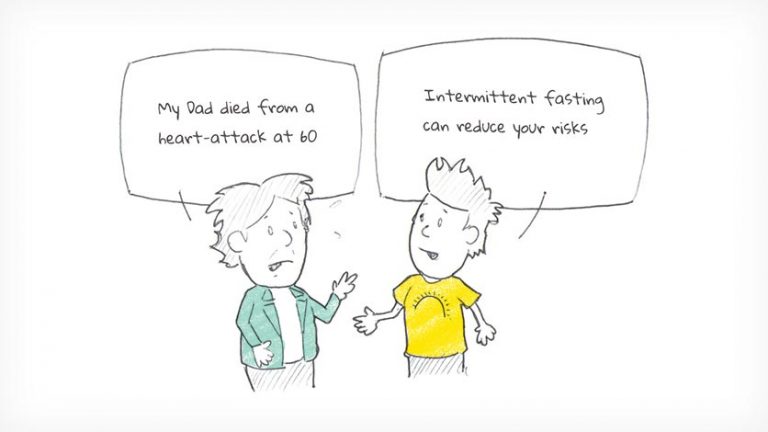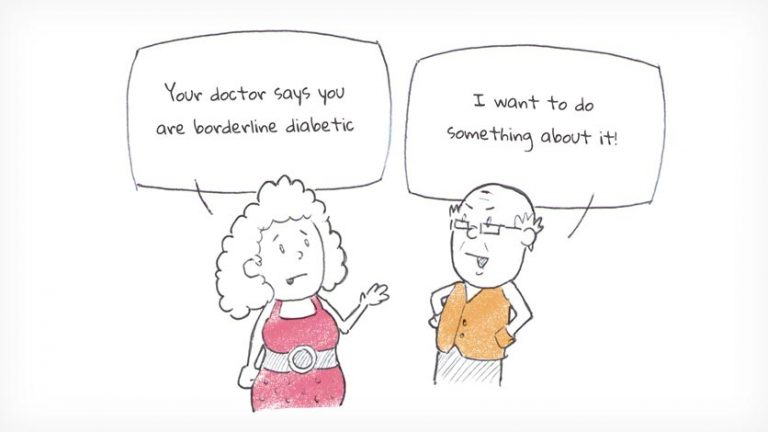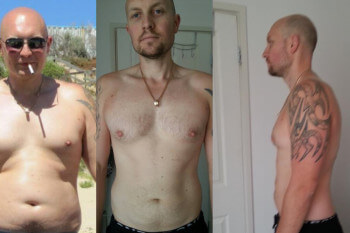How should I eat when not fasting? Or, what is normal eating?
The eating rules of intermittent fasting are so simple: if you’re not fasting you should eat normally. But what is normal? And, are there ever any exceptions to this rule?
For most people, intermittent fasting results in easy, steady weight loss without having to worry about what they eat when not fasting. Indeed, the fasting has a great bonus effect of reducing appetite on non-fast days, helping the situation along. This effect may take a while to kick in, so if you feel you are not losing weight because you are eating too much on the non-fast days, keep calm and carry on with the fasting – give it a month and see how your appetite and desires change.
If you worry that you might be over-eating, perhaps you are not losing weight, or have days when you are so hungry that you feel you are eating everything that hasn’t been nailed down, read on for some ideas about what is normal eating.
What is normal eating?
It’s a fairly safe bet that most of us who need to lose weight didn’t get overweight by eating normally! There are two aspects to ‘normal’ eating: how many calories you eat and the kinds of things that you eat.
1. How many calories?
They say that the average woman needs 2000 calories a day and the average man needs 2700 calories. But most of us are not average! The average woman in this instance is about 164cm tall, aged 19–30 years, moderately active and weighs 58kg. The average man is 174 cm, aged 19–30 years, moderately active and weighs 70kg. If this is not you, then it is quite likely that your normal daily calorie needs are different. It’s a sad fact that, as we age our calorie requirements fall, but our appetites don’t seem to reduce at the same time! What was normal eating in our youth becomes over-eating in our middle-age. Losing weight itself also lowers our energy needs.
There are ways of estimating how many calories you should need based on your age, height, weight and activity level. The FastDay progress tracker will give you an estimation of your TDEE (total daily energy expenditure) which is a good starting point for knowing how many calories you should be eating on your non-fast days.
If you’re not losing weight, a good first step is to count calories on a couple of average non-fast days to see whether you are eating more than your calculated TDEE. It is easy to under-estimate how many calories you are really eating – or drinking. Even so-called healthy foods can be high in calories: a glass of fruit juice, or a handful of nuts could be enough to take you over your TDEE. Be reassured, though, that you won’t have to count calories every day – intermittent fasting is not about watching what you eat all the time – it’s just a good idea to check out how much you are eating on an average day to help you to know whether you are eating about the right amount.
It is important to remember, though, that the TDEE calculation is just an estimate and is not specific for you. There are many factors that can influence your actual TDEE so that it does not match the calculated value. If you are eating within your calculated TDEE, it might be that your actual TDEE is lower than expected due to your metabolic rate being lower than the calculator assumes or perhaps you are not as active as you think. It is generally a good idea to set the activity level lower than you think when estimating TDEE.
As you lose weight your daily energy needs will decrease, so even if you were eating within your TDEE when you started intermittent fasting, it is possible that you are now overeating.
Read more about metabolism in weight loss
2. Where are your calories coming from?
Some people find that changing the types of foods that they are eating on their non-fast days can help weight loss. Indeed, our research at FastDay has found that people following the 5:2 diet who changed their normal eating patterns so that they were eating more vegetables, less sugary foods, fewer ready-made-meals and were snacking less than before they started fasting lost weight faster than those whose eating habits on non-fast days had not changed.1
If you are insulin resistant (and as being overweight is strongly associated with insulin resistance, it is likely that you are) being mindful of the amount of carbohydrates that you eat may help with weight loss. Some people are more tolerant to carbohydrates than others and it is hard to predict what kind of carbohydrate intake you personally can have without slowing weight loss. The first step is to try to reduce intake of sugary foods and drinks (including fruit juice) and refined carbohydrates like white pasta, rice, flour, and highly starchy foods like potatoes. You might not need to reduce your carbohydrate intake by much to see an effect on the scales: start with a small change and monitor the effects on weight loss.
If you are decreasing your carbohydrate intake, what will you use to replace it? More vegetables is a great choice! We all know that vegetables are good for us, but often they do not make up much of our meals. However, if you consider that plants contain many substances that can really help improve our health, it is worth making an effort to like them. At FastDay we have some great recipes and tips on new ways to use familiar vegetables and some new vegetables you can try.
Learn more about how our bodies process carbohydrates
Plan your eating with our recipe finder
Could I be eating too little on my non-fast days?
It is quite natural in our enthusiasm to achieve rapid weight loss together with the natural appetite-suppressing effects of fasting to try to cut down on how much we are eating on non-fast days (or during the eating window). Surprisingly, perhaps, this can turn out to counter-productive.
Under-eating is stressful to your body and causes release of the stress hormone, cortisol.2 Cortisol increases insulin resistance, which encourages the body to store fat rather than use it for fuel.3 This can slow down weight loss. Secondly, when you consistently under-eat your body responds as if you were in a famine situation and tends to try to limit the weight loss. It does this in several ways, including lowering your metabolic rate by a little, making you a little less active and a bit more hungry. By contrast, when you over-eat your body raises your metabolic rate a little. The differences are not enough to prevent you from losing weight completely: if you cut calories enough you will surely lose weight (though you may feel very hungry). Note that these effects are not the mythical ‘starvation mode’ that is so often talked about in dieting circles.
Read the truth about fasting and dieting myths
Learn to listen to your body’s hunger signals
Eating normally with intermittent fasting does not mean constantly under-eating nor constantly over-eating on your non-fast days, but varying how much you eat – much as people who are naturally thin do. If you watch people who have never had a weight problem you’ll find that some days they are hungry and eat a lot, other days they eat very little, perhaps saying “I forgot to have lunch”. Now it’s your chance to be like them. You’ll probably find that fasting helps you to recognise true hunger better and you too will notice that you have days when you are more hungry and days when you are less hungry – try to follow what your body is telling you rather than forcing yourself to restrict your intake every day.
If you never have any less hungry days, perhaps you have been over-doing the fasting or restricting too much on your non-fast days.
Learn about dealing with excessive hunger
Hover over page elements to highlight them, then click to create an annotation.

